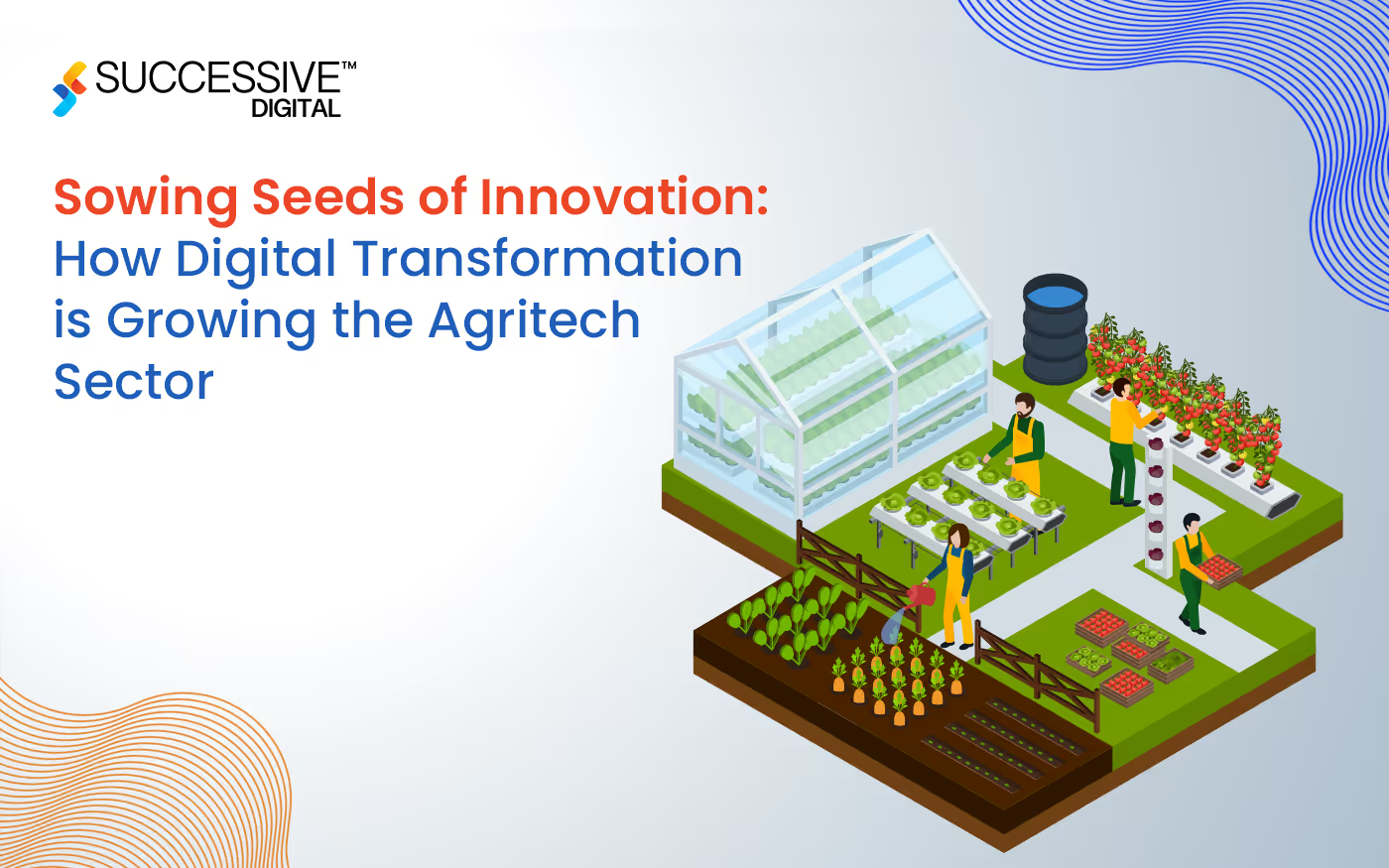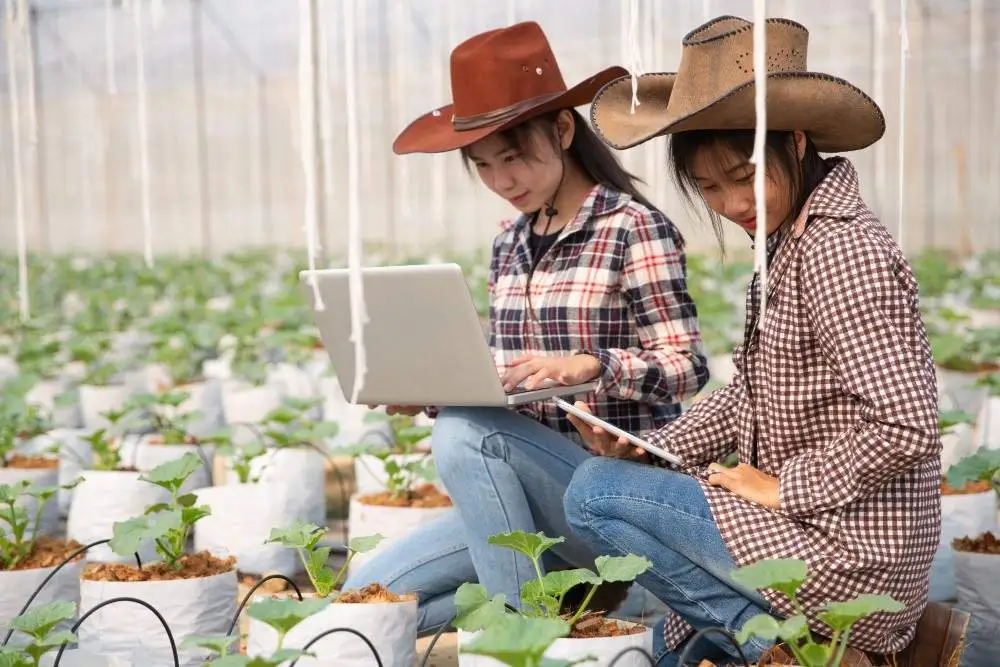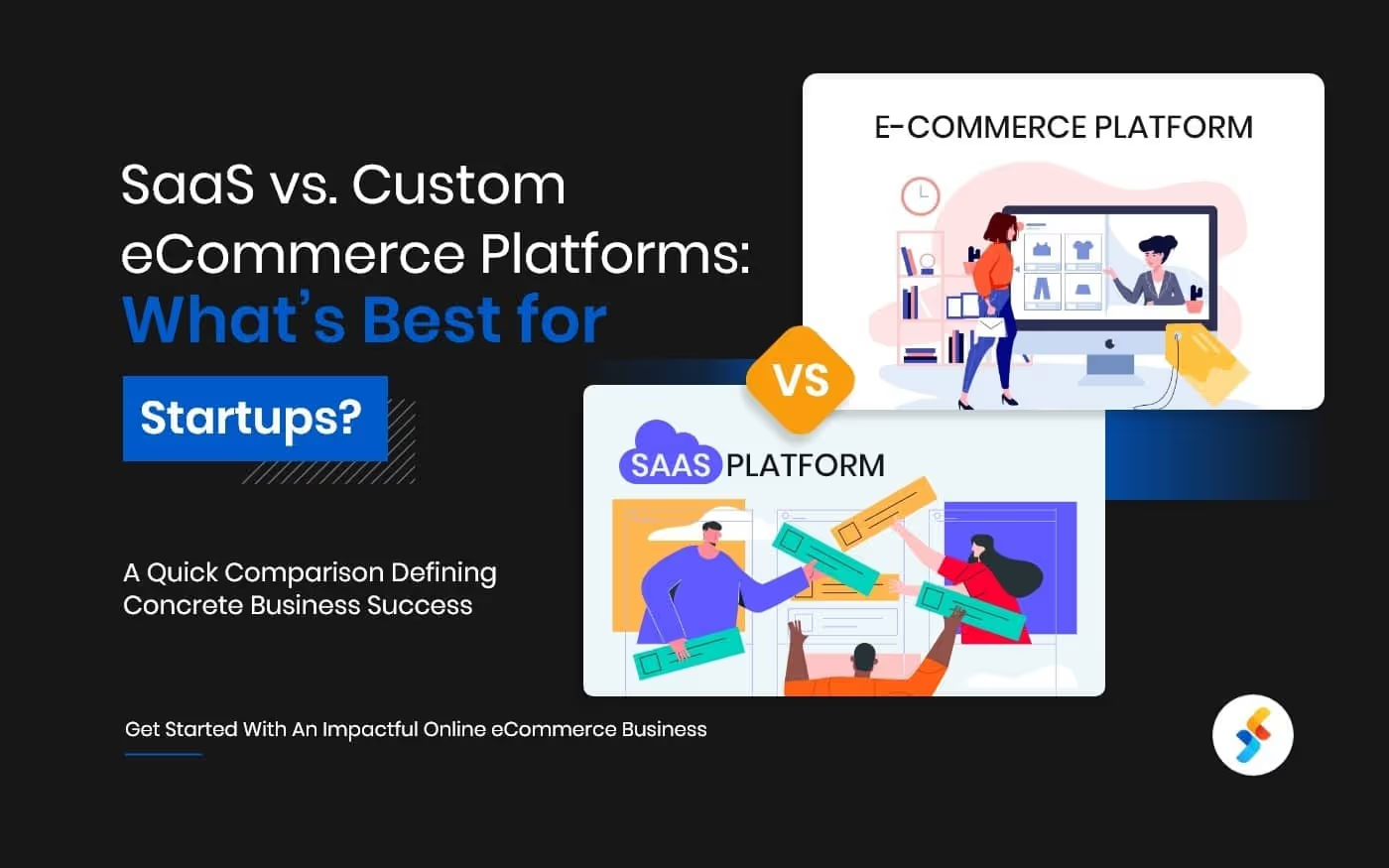In an agricultural evolution characterized by technology development, natural forces and human intelligence, a profound transformation is taking place driving this change and reshaping traditional agricultural practices. The digital innovation in agriculture, often referred to as agritech, heralds a revolution that promises to redefine every fabric of present-day agriculture. Gone are the days of relying on instincts and mere advisory services; precision agriculture, data analytics, and IoT-enabled intelligent agriculture are paving their way to revolutionize the global agricultural practices. These advances are giving farmers the power of unprecedented insights, enabling them to optimize production, reduce waste of useful resources, and minimize risk in unimaginable ways.This blog will explore the myriad aspects of digital transformation in agriculture along with technology revolution by delving into the transformative potential of digital technology in this sector. From the rise of precision agriculture to data analytical services to the response of IoT pushing to smart agriculture, innovative approaches and modern technologies will be witnessed riding on sustainable growth in the agricultural technology sector.
Harvesting Tomorrow’s Innovation: The Evolution of Precision Agriculture
Precision farming harnesses the power of technologies such as GPS, drones, sensors, and data analytics. By managing suitable crops, and targeting the best use of assets, farmers can increase yields and reduce inputs including water, fertilizers, and pesticides. This data-driven approach not only supports productivity and performance but also adds to sustainability by helping to reduce environmental footprint and increased waste generation. As precision farming evolves, it heralds a new era of technology revolution for farmers characterized by innovation, efficiency, and sustainability, giving the global agriculture industry a commanding shape playing forward in the face of change economic conditions, including weather chance and food security.
Digital Transformation Empowering Farmers with Data Analytics

Data analytics in agriculture enable farmers use statistical insights to improve decisions on farming and increase efficiency. The technology equips growers with advanced data analytics tools and systems to gain valuable insights into various aspects of crop management, and soil health, weather models and product market pricing.These abundant records help farmers throughout the farming cycle from seed selection to harvest and crop management to marketing. Ultimately, data analysis is an asset in a farmer’s digital agriculture adoption, empowering them to meet the challenges of modern agriculture and produce sustainable products.
The Role of Internet of Things (IoT) in Smart Farming
In agriculture, IoT employs devices like sensors, actuators, and drones to screen soil moisture, temperature, crop fitness, and environmental conditions in real-time. This data is transmitted to centralized systems for comprehensive evaluation, allowing farmers to receive actionable insights and make knowledgeable choices to optimize their farming practices.The use of IoT in agriculture enables farmers to optimize irrigation systems, more accurately test crop, and identify the presence of pests faster, thereby reducing waste and maximizing overall productivity. Besides, IoT-enabled smart farm automate routine tasks, including irrigation and fertilization, reducing labour costs, and saving valuable time allowing farmers to focus on strategic decision making for better yielding.Additionally, IoT allows for remote monitoring and flexibility, helping farmers to transform their operations from anywhere through internet connectivity. This level of communication optimizes efficiencies, improves crop response models while emerging from complex situations, and encourages proactive management.Overall, the integration of the IoT era into smart agriculture represents a paradigm shift in agricultural management, empowering farmers to provide real-time insights, automation, and remote capabilities. As the agriculture industry embraces IoT innovations, agricultural fortunes look brighter, with accelerated operations, better productivity, and sustainability.
Transformative Solutions for Sustainable Agritech Sector
Agritech solutions are becoming increasingly effective tools in agriculture to drive sustainability, encourage digital practices that enable environmental responsibility, stewardship, economic efficiency, and social responsibility. From precision farming to blockchain-enabled supply chain transparency, technology developments in farming practices are changing the global landscape of sustainable agriculture.Advanced digital solutions in agriculture use remote sensing technologies such as satellites and drones to determine crop health and analyze environmental conditions with unprecedented accuracy. This approach enables farmers to consume resources manage efficiency, reduce water and pesticide, and reduce the environmental impact. Additionally, by providing customers with reliable data based on actual agricultural products and production processes, the inclusion of blockchain truly embraces and creates a deeper connection between farmers and consumers.Furthermore, the advent of mobile systems and online commerce democratizes access to agricultural processes and resources, empowering small farm holders with significant data of crop consumption, markets on development and weather forecasting.Essentially, the rapid digital transformation driving the sustainable agriculture sector represents a paradigm shift in the way we all produce and consume food, providing a pathway to a food system that is strong, equitable and regenerative for future generations.
Navigating the Future: Exploring Tomorrow's Agritech Landscape
The future of Agritech represents an exciting frontier where modern technology and agricultural practices come together to change the way we grow food. As we see, a range of characteristics and innovations are poised to determine the development of agricultural technology.One very innovative and notable trend is the increasing integration of artificial intelligence (AI) and machine learning (ML) into agricultural strategies. This technology empowers farmers to analyze more data, provide better animal management, and perform statistical choices in real-time. Advanced AI-driven solutions can anticipate crop yields, encounter pests if crops and diseases are witnesses, and the responsibilities of irrigation and harvesting have become practically easy and manageable.The IoT in agriculture is playing a vital role in driving the next agritech wave, allowing seamless connectivity of devices and sensors throughout the farm. IoT sensors key statistics of crops to help farmers optimize irrigation systems, reduce water use and limit environmental impact through use of valuable insights.Advances in drones offer new possibilities for precision agriculture. Devices equipped with cameras and sensors can capture high-resolution images of fields, detect crop stress, and assess plant suitability. This aerial information allows farmers to face any challenges early, manage crop growth, and make appropriate choices to maximize yields.The future of agritech holds great promise, pushed through AI, IoT and many other emerging technologies. By embracing these improvements, farmers can increase productivity, reduce environmental impact, and create string food pipelines for future generation.
.avif)



.webp)






.jpg)









